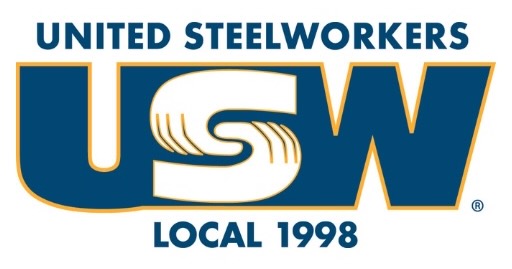July 3, 2024
Statement from the USW Local 1998 Executive Committee on the University of Toronto’s legal injunction against the People’s Circle for Palestine encampment protesters:
The University of Toronto’s request for a legal injunction against the People’s Circle for Palestine encampment protesters may have been granted by Judge Markus Koehnen based on property rights, but the University’s arguments for why the encampment protesters must be removed from King’s College Circle are no more ethically valid than they were before the Judge’s ruling. The Local 1998 Executive Committee condemns the Administration’s unprecedented threats of termination, arrests, academic discipline, and fines for faculty, librarians, staff, and students participating in peaceful protest and urges the University to work for a peaceful resolution without resorting to use of police.
President Gertler’s most recent communication states that people who do not abide by the court order and vacate the encampment before the court-imposed deadline of July 3, 2024, at 6:00 p.m. are “subject to consequences under University policy and the law.” This echoes threats of fines and other ‘disciplinary measures’ previously articulated in U of T’s notice of trespass, including the threats of termination for staff who are not members of UTFA and other punitive measures against students.
The Administration’s decision to issue a formal trespass notice and seek an injunction is an abandonment of the University of Toronto’s Statement of Institutional Purpose:
| The University of Toronto is dedicated to fostering an academic community in which the learning and scholarship of every member may flourish, with vigilant protection for individual human rights, and a resolute commitment to the principles of equal opportunity, equity and justice.
Within the unique university context, the most crucial of all human rights are the rights of freedom of speech, academic freedom, and freedom of research. And we affirm that these rights are meaningless unless they entail the right to raise deeply disturbing questions and provocative challenges to the cherished beliefs of society at large and of the university itself. It is this human right to radical, critical teaching and research with which the University has a duty above all to be concerned; for there is no one else, no other institution and no other office, in our modern liberal democracy, which is the custodian of this most precious and vulnerable right of the liberated human spirit. |
We note that the commitments expressed in the Statement above apply to all members of the U of T community. The recent statements and actions of the Administration, including threats of using police force, cannot be reconciled with the shared values of the University community articulated in the Statement.
In addition to defending the freedom of speech, “the most crucial of all human rights”, we denounce all forms of oppression, discrimination, harassment, and hate speech. Such conduct has no place on campus. The exchange of ideas must be respectful. We strongly urge the Administration to properly investigate any allegations of discrimination, harassment, and hate speech. The Administration’s actions and threats, including threats of using police forces, however, do not honour these ideals.
Rather, the Administration’s response undermines the most fundamental rights our members have, including the right to freely assemble, protest, express, and associate. We condemn this approach and oppose the Administration’s efforts to ban, or otherwise police, and punish peaceful protest on campus. We urge the Administration to abandon its punitive approach to peaceful protest and to recommit instead to a good faith negotiated resolution with students. We also urge the Administration not to discipline or terminate USW members who have engaged in peaceful protest.
If USW members (including those who are also students) choose to attend the encampment/protest site, they should do so outside of their working hours to avoid being disciplined by the employer for being absent from work. If the University issues discipline to a member in response to the member’s support of, or participation in, the encampment protest based on the terms and conditions of a collective agreement or any University rule or policy related to their employment, the Union will support and represent them.

